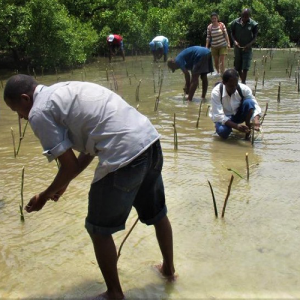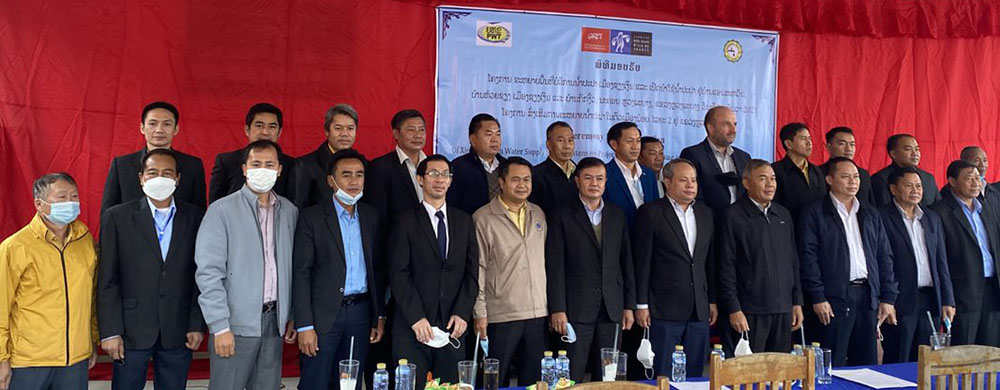On Sainte-Marie island, in Madagascar, the notion of “commons” takes on its full meaning. Under the leadership of GRET and its partners, a platform for consultation was set up to co-build a shared vision of environmental problems and solutions to these problems.
Known worldwide as a location where humpback whales reproduce, Sainte-Marie island, in the east of Madagascar, has a surface area of 220 km2 with a wealth of biodiversity, but it is fragile. Several dozens of plant species, some of which are endemic to the island, are threatened. The health of marine ecosystems is significantly degraded by excess fishing and climate change, and fish stocks are continually decreasing. Yet, 90 % of the population (35,000 inhabitants) depend on services provided by the island’s coastal and marine ecosystems, which represent the sum of 4 million euros generated mainly by fishing, but also by tourism. Slash-and-burn agriculture, which exploits the fertility of natural forests, has led to the loss of 25 % of the island’s forests in 30 years.
In light of these alarming observations, the Fonds français pour l’environnement mondial (FFEM) (French global environment facility), the Commission de l’Océan Indien (COI) (in french) (Indian ocean commission) and GRET’s Endowment fund for innovation in development supported a project from 2015 to 2018, led by GRET, with a view to implementing an integrated coastal zone management (ICZM)* strategy based on the population’s participation in the identification of environmental problems and the solutions to be implemented for better socio-ecological resilience in the territory.
The emergence of “commons” thanks to exemplary civic participation for the territory
Via a platform for consultation and support for sustainable development in Sainte-Marie (PCADDISM) – bringing together local authorities and State representatives, the strongly mobilised population, the private sector and civil society – continuous dialogue between these stakeholders led to the emergence of “commons” in Sainte-Marie. The commons are defined by political scientist Elinor Ostrom, winner of the Nobel Prize for Economics in 2009, as systems for the use of common goods, generally natural resources with shared access, combining self-management, customary rules, market mechanisms and State regulation.
Thanks to the PCADDISM, a veritable civic governing body governing the territory, inhabitants in Sainte-Marie collectively defined traditional rules – dina – for access to and management of forest and marine resources, partly based on local ecological knowledge and aiming for better sustainability of uses. The vibrancy of the PCADDISM and the initiatives taken in terms of environmental protection demonstrate a strong collective will to find a way out of the socio-ecological impasse.
Supporting the implementation of a protected area
Today, thanks to renewed financial support from Fondation Maisons du Monde, and a contribution from Agence française de développement via a programme agreement that will mobilise the commons approach for 12 GRET projects in nine countries, GRET will support the structuring, formalisation and growth of these emerging commons in Sainte-Marie via the implementation of a marine and terrestrial protected area that was approved by the population in 2018. The project intends to study best procedures for the governance and management of this protected area, where the population, via the PCADDISM, will be at the front line of actions to protect biodiversity in Sainte-Marie.
*The project for the protection of biodiversity and support for the implementation of integrated coastal zone management (ICZM) in Sainte-Marie has been led by GRET since 2015, alongside its partners: the PCADDISM, the CetaMada association and Missouri Botanical Garden (MBG).





